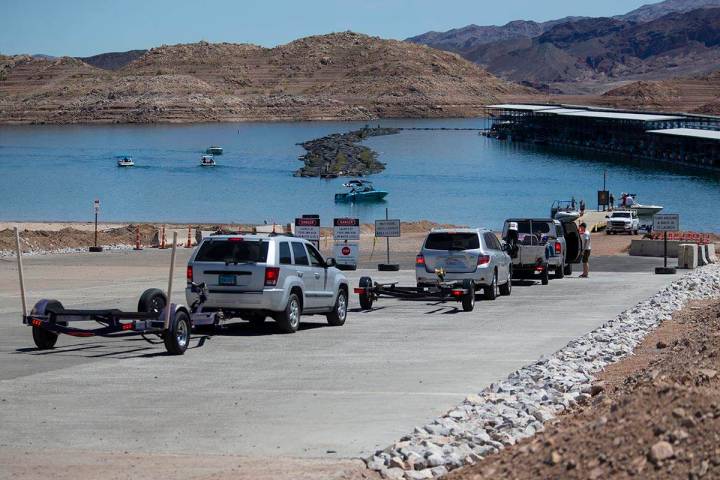Take a deep dive into Lake Mead’s colorful history.
Lake Mead
Southern Nevada Water Authority would have the authority to impose water use restrictions on the biggest users under a bill heard by the Assembly Natural Resources Committee.
A National Park Service spokesman says it is not possible to say why visitors to Lake Mead National Recreation Area dropped off without further research.
Two competing proposals to achieve federally mandated cuts to Colorado River water use are on the table, but agreement between states has remained elusive.
While states continue to negotiate over how to cut back on Colorado River water use, the Southern Nevada Water Authority is preparing for a “worst-case scenario.”
The mountains that feed the Colorado River already have seen more snow this winter than they normally would through an entire snow season.
A Nevada assemblywoman introduced a bill this week that would prohibit restaurants from automatically serving water to customers.
In the latest Conservation in the West Poll, low river levels was ranked as the most serious concern by Nevadans, ahead concerns over the rising costs of living and gas prices.
One of the Colorado River’s two major reservoirs is expected to collect better than average runoff this year, thanks to an unusually wet La Niña pattern that dropped a deluge of snow up and down the basin.
With the recent expiration of a federal deadline, California now finds itself sharply at odds with six other states over how to take less water from the shrinking Colorado River.
Amid a major drought in the Western U.S., a proposed solution comes up repeatedly: large-scale river diversions, including pumping Mississippi River water to parched states.
California has submitted its own plan for cuts to conserve water along the drought-stricken Colorado River, but its plan differs from one submitted by the six other states that also draw water from the river.
California released a plan Tuesday detailing how Western states reliant on the Colorado River should save more water. It came a day after the six other states in the river basin made a competing proposal.
Six out of seven Colorado River basin states have settled on a proposed set of cuts aimed at saving the crumbling river system and preventing Lake Mead and Lake Powell from crashing — with one very notable state missing from the agreement.
While not enough to fend off the falling water levels entirely, the snow that has dropped in recent weeks across the mountains that feed the river is expected to slow the decline at Lake Mead.






















